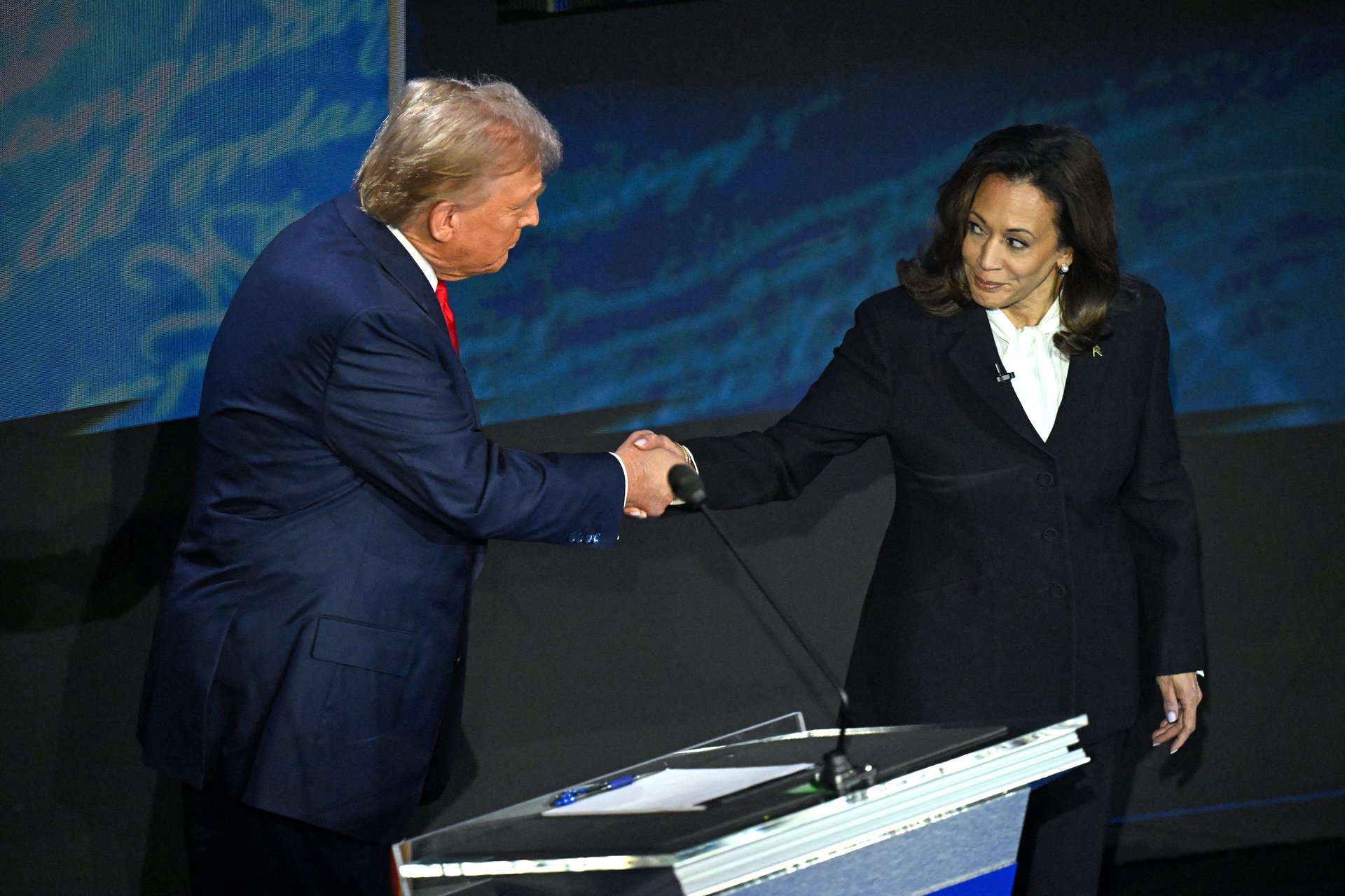How Kamala Harris and Donald Trump would affect banking, according to Moody's
Trump's 2018 rollback of regulatory requirements was "credit negative" for banks

The outcome of the U.S. presidential election will shape coming regulations to the banking sector, including how strict or lax new capital and liquidity requirements could be.
Suggested Reading
“The elections’ results will likely influence the intensity of the financial regulatory environment amid lingering risks in the banking sector,” Moody’s Ratings banking analysts said in a report published by the ratings agency Tuesday.
Related Content
Policy differences between Republican presidential candidate Donald Trump and Democratic presidential candidate Kamala Harris could play out in a number of key areas for the finance sector, including capital and liquidity requirements, the regulatory approach to mergers and acquisitions, and consumer protection, the analysts said.
One of the biggest regulatory question marks is the Basel III Endgame proposal, which would require banks to keep more capital on hand to cover losses. Regulators originally sought to increase capital requirements for major banks by 19%. After receiving considerable pushback from banking sector executives, however, regulators watered down the proposal to a 9% increase in capital levels, according to Federal Reserve Vice Chair for Supervision Michael Barr.
Moody’s noted these changes will likely delay a final rule until next year, and could further push back implementation requirements, which were originally expected by mid-2025.
Barr’s revised proposal would be a more modest reversal of Trump-era regulatory changes, which loosened requirements on the banking sector. In 2018, Trump rolled back some of the stricter regulations on banks that had been put in place following the 2008 financial crisis. These included making regulations standard only for banks with at least $250 billion, doing away with the previous $50 billion threshold.
Critics argued these changes paved the way for last year’s Silicon Valley Bank collapse and regional banking crisis. Moody’s said, at the time, that the changes were “credit negative” for the sector.
In its note Tuesday, Moody’s said a second Trump term would likely be a continuation of reduced capital, liquidity, and other safeguards for small- and mid-size banks. This risks potentially diminishing protections for bank creditors, which would be a credit negative, the ratings agency said.
Moody’s analysis:
A Trump administration would likely adopt a lighter regulatory approach, including the appointment of industry-friendly officials and the possible revision or withdrawal of pending regulatory proposals. Under a Republican leadership, we would also expect a less proactive approach to consumer financial protection efforts, fewer obstacles to bank merger activity and a more hesitant approach to expanding regulation within the nonbank sector.
While Harris hasn’t revealed plans for the banking sector, a potential Harris administration would likely fall in line with President Joe Biden’s stance on regulation, according to Moody’s. The ratings agency said a Harris administration would be a “credit positive” for the banking sector.
Moody’s analysis:
Under a Harris administration, we expect many of the proposals will be finalized and implemented and result in stricter capital and liquidity requirements, especially for larger regional banks. We also expect a regulatory stance aligned with President Biden’s agenda. Among the agenda items is a focus on proactive consumer protection efforts such as reducing consumer banking fees and pushing for greater transparency among and enhanced oversight of nonbank financial institutions through the Financial Stability Oversight Council.
Other banking considerations
Moody’s report comes as the Fed embarks on a rate-cutting campaign, which it kicked off last week with an aggressive half-point cut.
Tony Roth, chief investment officer for Wilmington Trust Investment Advisors (MTB), said banks — and regional banks, in particular — face a fork in the road depending on how the economy shapes up next year.
Banks tend to benefit from lower rates thanks to lower costs of funding. But that will only be true if the Fed achieves a soft landing, where it guides inflation down to its 2% without sending the economy into a recession.
While that’s the investment firm’s base case scenario, if lower rates are a prelude to a recession, “then the outlook for these banks would be far less rosy,” Roth said. That could cause a spike in a number of negative scenarios for banks, including write-offs, credit defaults, and delinquencies.
Credit card delinquencies have been on the rise in recent months as people’s pandemic-era savings have run out and they rely more on credit for everyday purchases. This has been especially true for the lowest income and credit score Americans.
Roth said a Harris win would bring some relief to this cohort, with new tax credits and other benefits.
